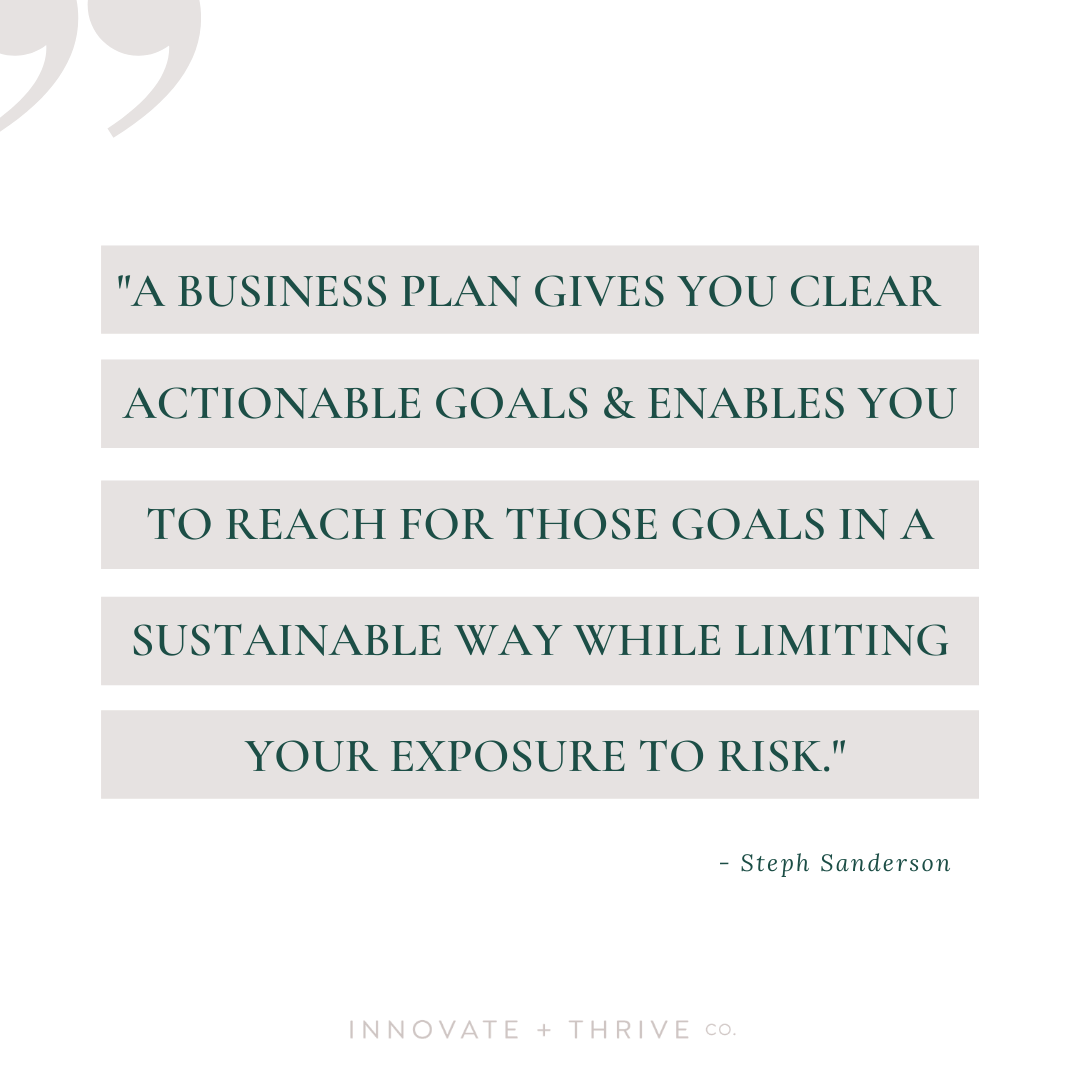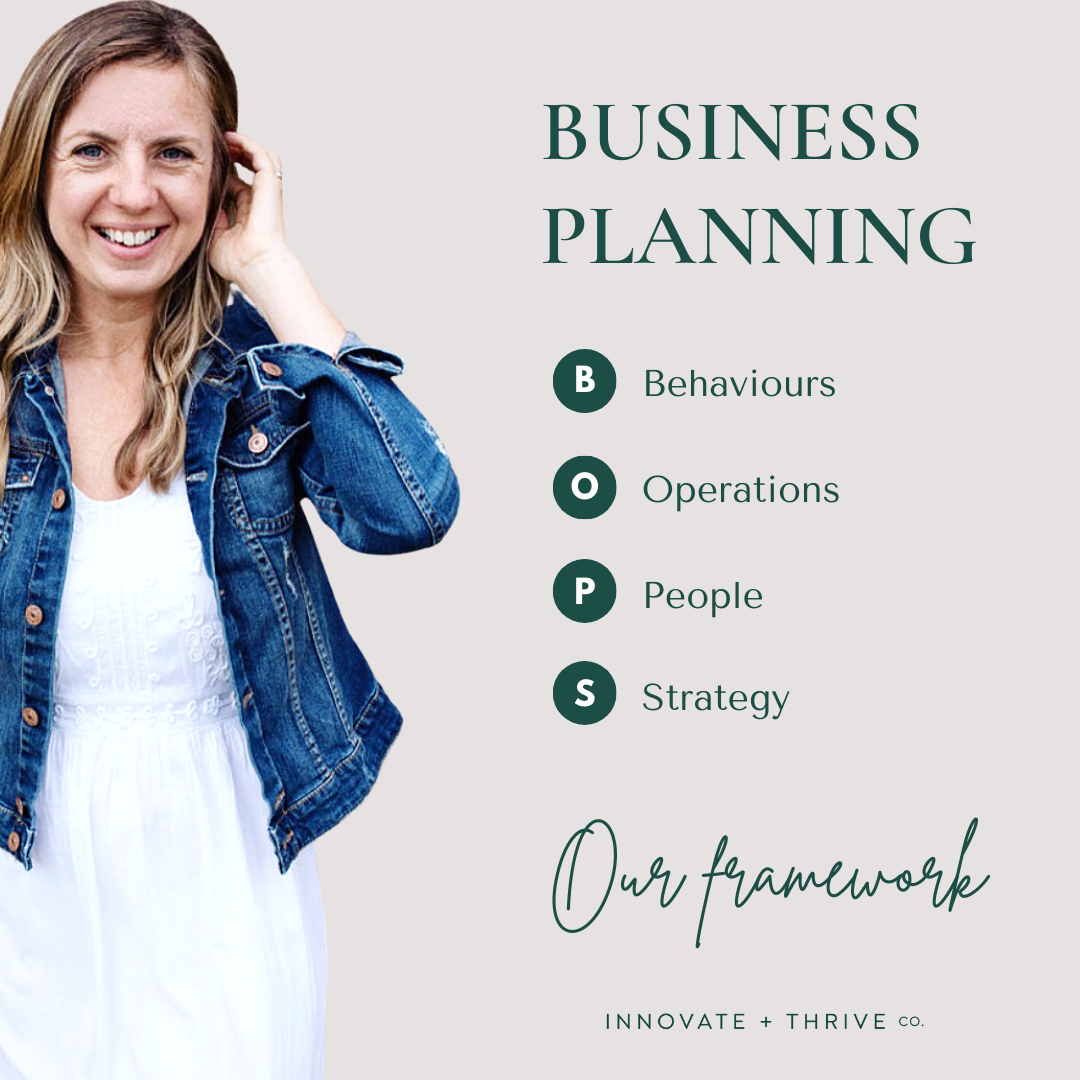

The importance of business planning | Why you need a plan
The importance of business planning can’t be understated. Mapping out the strategies to achieve your business goals is essential. I’ll walk you through the key steps to creating a business plan.
There’s no doubt that, as small business owners, we’re expected to wear all the hats and do so with a massive smile plastered on our face. It’s no surprise that actual business planning can often go out of the window. I mean, who has the time for that, right?
The problem is, ignoring your business planning is a huge mistake; in fact, it’s one of the main reasons 60% of new businesses fail in their first 3 years.
So why is business planning so important? Business planning allows for an adaptable and responsive business, setting you up for opportunities and protecting you from threats that come your way. It’s your guide, your map and your plan.
In this blog, I’ll be exploring the different elements of a strategic (and successful!) business plan, as well as sharing my key insights into why and when you should start business planning. And remember – you can always reach out for 1-1 advice on your own business plan if you want to take things a step further.
Business plan definition: a document that describes a business’s aims for the future and the ways in which the business hopes to achieve those aims.
Why is a business plan important?


Cards on the table – a good business plan isn’t a nice to have, it’s a necessity.
The good news? It doesn’t have to be a forty page document with an appendix to rival the Oxford Dictionary. You can make it as simple or as multi-layered as you need. It is your unique plan, after all.
Your business plan matters because it’s designed to show you where you are and where you want to be. Not only does this give you clear, actionable goals, but it enables you to reach for those goals in a sustainable way while limiting your exposure to risk.
It doesn’t matter whether you’re a one person band or a thriving, international corporation; your business plan will keep you on track. It will become your ‘go to’ open ear, and a sure-fire way to guide decisions. It’s about clarity and direction, encompassing everything from your business strategies, to your operating model, marketing, financial forecasts and the overall WHAT and WHY of your business.
Basically? It’s your top of the range Sat Nav, steering you towards top notch success.
What is strategic business planning?
When we talk about strategic business planning, we’re looking at the logical and creative steps needed to pinpoint long term goals, and then our ability to rank them by importance.
It’s a high-level process that considers the many internal and external factors influencing a business, before building a plan that utilises (or eliminates) those factors in order to achieve objectives.


It may sound complicated – and it can be! – but there are ways to break down the process into manageable, impactful chunks. I like to use my own framework ‘BOPS™’ when it comes to strategic business planning.
BEHAVIOURS – Values, information flow and decision making
OPERATIONS – Processes (including the client experience), systems and facilities
PEOPLE – Skills, organisation structure, roles and performance management
STRATEGY – Ideal clients, products and services, pricing, financial forecasting and marketing
Essentially, it’s about creating a framework with sound pillars, and taking your business from ok to great. Sounds easy, right?
How to write a business plan
So, you know you need a business plan in your life. Excellent! Now you need to actually write the thing.
My biggest piece of advice is to keep it simple. In a nutshell, your business plan should detail what your business is, how it will work and who will be responsible for what. These should be your core information pillars, with the details spread underneath.
When it comes to sections, your plan should be responsive to the bespoke nature of your business. However, as a starter for ten, I encourage you to cover:
- Business summary (including a description of your business, services and/or products, the details of roles you will outsource/resource, any business premises and whether you will be full or part-time).
- Market research (with any opportunities you’ve identified and your epic idea for a product or service, backed by your competitor pricing structures, gaps in the market and trends you’ve observed).
- Products and services (going into the detail on each individual product/service. You should also calculate cost, retail price and profit margin).
- Operations (including processes, systems and facilities).
- People (include anyone who will be needed to deliver your business plan, whether employed or outsourced. You’ll need role descriptions, and possibly performance management guidelines).
- Financial forecasting (be sure to note fixed costs and overheads, variable costs, projected income and projected profit).
- Marketing plan (don’t just focus on one channel for your marketing; consider where your clients show up both on and offline).
- Goals (look at the year ahead set SMART goals that both keep you on track and encourage you to strive for more).
Remember: just because you’ve written a business plan, it doesn’t mean you’re now set for life. These are a set of guidelines and assumptions that you should regularly refer back to. Your plan should never be regimented or tie you down to a set path: this would be to the detriment of your business. Agility is key!
When to write a business plan
There’s a belief that the best time to write a business plan is between six and 12 months after starting your business. In my view, the best time is now.
A business plan is equally important for someone looking to launch a new business as it is for someone hoping to evolve their company or take it in a new direction. It is worth noting, however, that having genuine evidence and information about buyer behaviour is an enormous benefit when it comes to crafting your plan.
Creating a simple business plan
Keen to get started on your own business plan? I’ve created a simple checklist for you to get stuck into straight away. Download it on the link below!


Steph Sanderson is a business design consultant who helps service-based businesses to accelerate their growth in a sustainable way through pricing, customer experience, process planning, systems and strategic planning. She has over 15 years experience in the field, working as a business manager, global Change Manager and Implementation Specialist. Find out more.

First time here, wish you good!